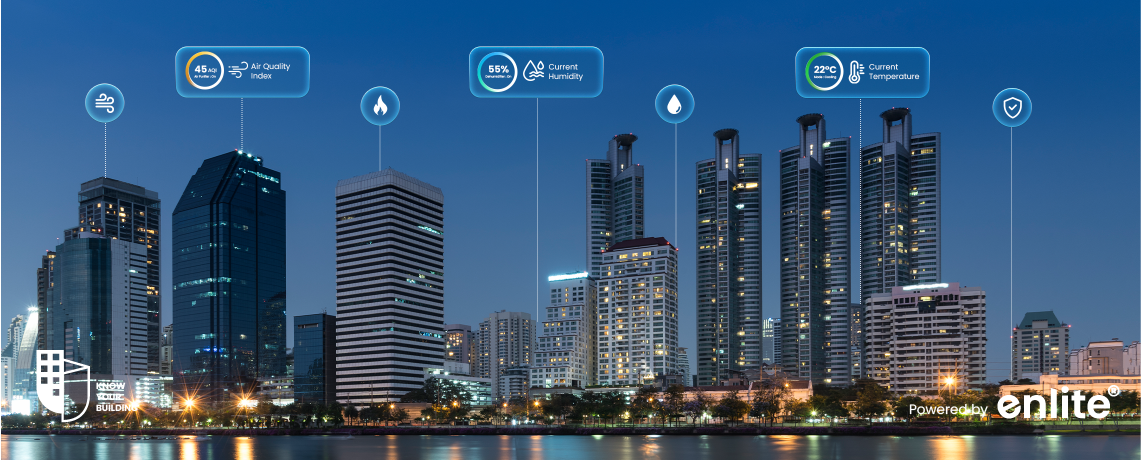Introduction
As cities grow and urbanization accelerates, the need for sustainable urban development has never been more urgent. With rising energy consumption, carbon emissions, and infrastructure challenges, Smart Cities are emerging as a solution to create efficient, connected, and eco-friendly urban environments. At the core of this transformation lies Building Management Systems (BMS)—an advanced technology that enables buildings to operate efficiently while integrating with city-wide sustainability initiatives.
What is a Building Management System (BMS)?
A Building Management System (BMS) is a centralized automation platform that monitors and controls critical building operations, including HVAC, lighting, security, energy management, and water systems. By leveraging IoT, AI, and real-time data analytics, BMS optimizes resource usage, improves occupant comfort, and reduces carbon footprints, making it an essential component of Smart Cities.
How BMS Supports Smart Cities
1. Energy Efficiency and Carbon Reduction
Buildings account for nearly 40% of global energy consumption. Smart Cities focus on reducing energy waste, and BMS plays a key role by:
- Optimizing HVAC and lighting based on real-time occupancy and weather data.
- Integrating renewable energy sources, such as solar panels and wind turbines.
- Providing AI-driven energy analytics to minimize power consumption.
Impact:
- 30-40% reduction in energy bills.
- Lower carbon footprint, supporting climate action goals.
- Increased reliance on clean energy for sustainable development.
2. Smart Water and Waste Management
Water scarcity is a major challenge for urban areas. BMS helps cities monitor and optimize water usage, reducing wastage and improving efficiency.
- IoT-enabled leak detection systems prevent water loss.
- Automated irrigation systems optimize landscaping water consumption.
- Smart metering and analytics ensure responsible water usage in commercial buildings.
Impact:
- 20-30% reduction in water consumption.
- Improved efficiency in waste and sewage management.
- Better resilience to urban water crises.
3. Integrated Urban Security and Safety
Security is a top priority for Smart Cities, and BMS enhances urban safety through AI-powered surveillance, access control, and emergency response systems.
- Smart access control systems manage building security in real time.
- AI-driven threat detection identifies suspicious activities and alerts security teams.
- Seamless integration with city-wide emergency services ensures rapid response to incidents.
Impact:
- Lower crime rates with proactive surveillance.
- Faster response times to emergencies.
- Enhanced public safety through intelligent security automation.
4. Traffic and Transportation Management
Smart Cities aim to reduce traffic congestion and promote sustainable mobility solutions. BMS contributes by optimizing parking, public transportation, and electric vehicle (EV) charging stations.
- Automated smart parking solutions reduce congestion.
- BMS-powered EV charging management ensures efficient grid distribution.
- Real-time occupancy tracking helps urban planners optimize transportation infrastructure.
Impact:
- Reduced traffic congestion and CO₂ emissions.
- Improved public transport efficiency.
- Increased adoption of EVs and smart mobility solutions.
5. Sustainable Smart Buildings and Green Infrastructure
Green buildings are a crucial part of sustainable cities. BMS plays a vital role in achieving LEED and WELL certifications, ensuring that buildings align with global sustainability standards.
- Smart energy storage and grid integration improve energy resilience.
- Automated demand-response systems reduce strain on urban power grids.
- Data-driven sustainability reporting helps cities track environmental impact.
Impact:
- Increased adoption of eco-friendly building designs.
- Greater compliance with sustainability regulations.
- Stronger alignment with global climate action initiatives.
The Future of BMS in Smart Cities
As Smart Cities continue to evolve, the integration of AI, IoT, and blockchain will further enhance BMS capabilities:
- AI-driven self-learning buildings that adapt to occupant behavior.
- Blockchain-enabled energy trading for decentralized power management.
- 5G-powered real-time connectivity for seamless urban automation.
Final Thoughts
The transition to Smart Cities and sustainable urban development depends on intelligent building management solutions. BMS not only optimizes energy, security, and resource utilization but also supports a city-wide shift toward greener, smarter, and more efficient urban environments.
Want to implement smart, sustainable solutions in your commercial building? Discover how Know Your Building can integrate BMS into your Smart City strategy. Contact us today for a free consultation!














